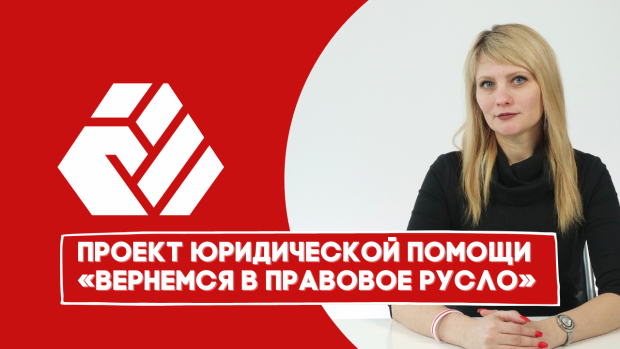The Belarusian repressive judicial machine is working at full capacity - political prisoners are sentenced almost every day. Now there are questions about the types of punishments and the order of their execution (no matter how scary it may sound). Let's take a look at this issue.
The following types of punishment are applied to persons who have committed crimes in Belarus:
Let's talk about some of the types of punishment in more detail.
Community service is free to work for the public good for a period of 60 to 240 hours. If a person has the primary job, he comes to general work in his free time - for four hours a day.
Correctional labor is work in the same place, but part of the salary (10-25% - at the court's discretion) is withheld in favor of the state.
An arrest is the strict isolation of a convicted person for a term of one to three months. The convicts serve their punishment in the house of arrest closest to their place of residence. Detention houses are located, among other things, in the territories of colonies, prisons, and pre-trial detention centers.
Restriction of freedom with a referral to an open-type correctional institution - the so-called "chemistry." Convicts live in premises that look like dormitories or barracks and go to work every day - usually outside their place of residence. It can be a sawmill or a collective farm, as a rule, unskilled labor. Many well-known Belarusian oppositionists have been punished with "chemistry": Nikolai Statkevich, Pavel Sevyarynets (twice). The latter said that visitors could come to the convict, and it is allowed to use a mobile phone, receive letters and visit relatives several times. Now political prisoners have received "chemistry": Levon Khalatryan, Yuri Savitsky, Ivan Krasovsky, Dmitry Kulakovsky, Artem Vinokurov, Denis Grekhanov, Valery Kalenchits, and many more young and strong men who will work for the "good of the state" and have no right to express their civil position.
Restriction of freedom without being sent to an open-type correctional institution is "home chemistry," that is, the convicted person stays at home but must follow several rules - for example, go to work, report to the police. According to a court verdict, a person who received "home chemistry" is constantly visited by the police and comes at any time of the day. A person can go to work or study, but the route is strictly limited. For participation in mass events in 2020, political prisoners Renata Smirnova, Olga Pavlova, Maria Bobovich received "home chemistry."
When deprived of liberty, they are sent to the following correctional institutions:
I would also like to note separately that according to Article 75 of the Criminal Code of the Republic of Belarus, the rules for offsetting the terms of detention and house arrest are determined.
Moreover, one day of detention and two days of house arrest correspond to:
Lukashenko's regime is based on fear, repression, prisons, and torture. And now it is obvious, both for everyone inside the country and for the world community. As Cicero said: "The closer the collapse of the empire, the crazier its laws." The bloody dictator's reign is almost over. His departure is only a matter of time.
And very soon, those who pass unjust sentences, falsified elections, or use weapons against peaceful protesters will be in the dock.
Long live Belarus!
Support HERE.
The following types of punishment are applied to persons who have committed crimes in Belarus:
- community service
- fine
- deprivation of the right to hold certain positions or engage in certain activities
- correctional labor
- limitation on military service
- arrest
- restriction of freedom
- deprivation of liberty
- life imprisonment
- the death penalty
Let's talk about some of the types of punishment in more detail.
Community service is free to work for the public good for a period of 60 to 240 hours. If a person has the primary job, he comes to general work in his free time - for four hours a day.
Correctional labor is work in the same place, but part of the salary (10-25% - at the court's discretion) is withheld in favor of the state.
An arrest is the strict isolation of a convicted person for a term of one to three months. The convicts serve their punishment in the house of arrest closest to their place of residence. Detention houses are located, among other things, in the territories of colonies, prisons, and pre-trial detention centers.
Restriction of freedom with a referral to an open-type correctional institution - the so-called "chemistry." Convicts live in premises that look like dormitories or barracks and go to work every day - usually outside their place of residence. It can be a sawmill or a collective farm, as a rule, unskilled labor. Many well-known Belarusian oppositionists have been punished with "chemistry": Nikolai Statkevich, Pavel Sevyarynets (twice). The latter said that visitors could come to the convict, and it is allowed to use a mobile phone, receive letters and visit relatives several times. Now political prisoners have received "chemistry": Levon Khalatryan, Yuri Savitsky, Ivan Krasovsky, Dmitry Kulakovsky, Artem Vinokurov, Denis Grekhanov, Valery Kalenchits, and many more young and strong men who will work for the "good of the state" and have no right to express their civil position.
Restriction of freedom without being sent to an open-type correctional institution is "home chemistry," that is, the convicted person stays at home but must follow several rules - for example, go to work, report to the police. According to a court verdict, a person who received "home chemistry" is constantly visited by the police and comes at any time of the day. A person can go to work or study, but the route is strictly limited. For participation in mass events in 2020, political prisoners Renata Smirnova, Olga Pavlova, Maria Bobovich received "home chemistry."
When deprived of liberty, they are sent to the following correctional institutions:
- Educational colony. For convicts under 18 years old - and up to 21 years old at the time of the verdict. Then they are transferred to "adult" colonies to a general regime. For example, for participation in mass events in 2020, 16-year-old Nikita Zolotarev, who is sick with epilepsy, was sentenced to 5 years in an educational colony.
- Correctional Facility. The mode of serving a sentence (general, enhanced, strict, special) differs only in the amount of money allowed in the convicted person's account, the number of visits with relatives, and the number of parcels and parcels. Convicts with different regimes can serve their sentences in one colony. Conditions of detention, including food, are the same. Nutrition (it can be regular and improved) depends on health (disability group) and employment at work.
- Jail. The strictest correctional institution. You can get there in two ways: immediately by a court verdict (repeat offenders who commit a severe crime) or malicious violation of the colony regime. This is the way Nikolai Statkevich went. In the Mogilev prison, there was a former political prisoner Andrei Bondarenko with the status of a "persistent violator of the regime." He noted: "The existing penitentiary system is a system of suppression of dissidents, not correction. There are parallels with 1937, when people still had to be kept in prisons after they had served their time. "
I would also like to note separately that according to Article 75 of the Criminal Code of the Republic of Belarus, the rules for offsetting the terms of detention and house arrest are determined.
Moreover, one day of detention and two days of house arrest correspond to:
- one day of arrest or imprisonment
- two days of restriction of freedom
Lukashenko's regime is based on fear, repression, prisons, and torture. And now it is obvious, both for everyone inside the country and for the world community. As Cicero said: "The closer the collapse of the empire, the crazier its laws." The bloody dictator's reign is almost over. His departure is only a matter of time.
And very soon, those who pass unjust sentences, falsified elections, or use weapons against peaceful protesters will be in the dock.
Long live Belarus!
Support HERE.


 Continue
Continue
